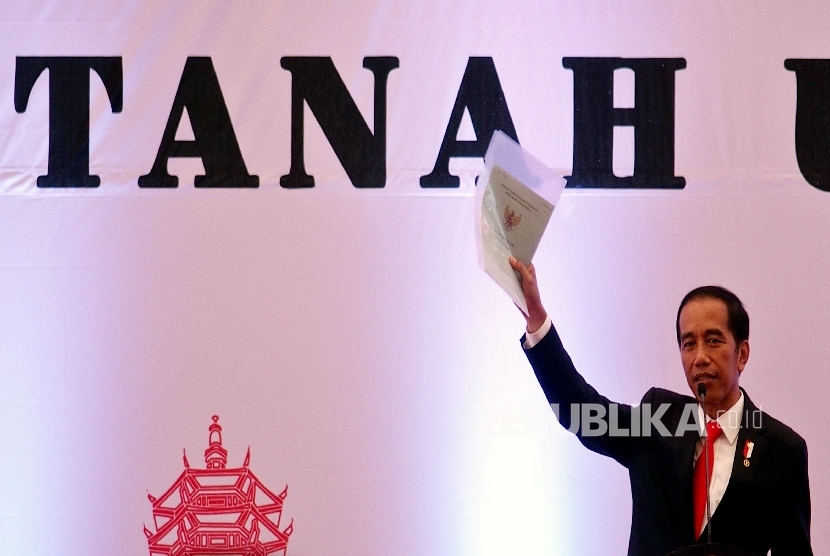REPUBLIKA.CO.ID, JAKARTA -- President Joko Widodo (Jokowi) has said the government is open to possible revisions Mass Organizations (Ormas) law, which originated from a lieu of law (Perppu) No. 2/ 2017 passed into law by the House of Representatives on Tuesday.
Jokowi asserted, the Government welcomes all criticism to improve Mass Organizations law.
"Yes, if there is something that needed to be revised, please go to the next step. It can be included in Prolegnas (National Legislation Program). If there is anything that seemed not good enough, things to be added or improved, just do it," Jokowi said on Thursday (Oct 26).
Furthermore, Jokowi said, the House of Representatives's approval to passed Perppu No. 2/2017 into law, has shown tendency to support his policy.
Based on he attendance of 445 members of the House as many as 314 members agreed to passed the Perppu into law. Meanwhile, about 131 members vote to refused it.
Totally, seven factions approved it into law, meanwhile three factions disagreed.
Government support parties such as Indonesian Democratic party of Struggle (PDI-P), Hanura party, National Democratic party, and Golkar Party were still solid to support the Perppu to be passed into law.
Meanwhile, United Development party (PPP), National Awakening party (PKB) and Democratic party accepted and supported it with some notes.
However, there were three factions who refused, namely Gerindra party, National Mandate party (PAN), and the Prosperous Justice party (PKS).
"DPR has approved it, so the majority is fully support to this Perppu," Jokowi added.
Ormas law gives the government the power to disband an organization without due process. It also prohibits any organization to adopt and spread an ideology contradicting Pancasila.
The President explained that this rule was designed to preserve the unity and diversity of Indonesia, and to defend the state ideology of Pancasila. With this rule, he said, no community organization expected to try to replace the state ideology.



